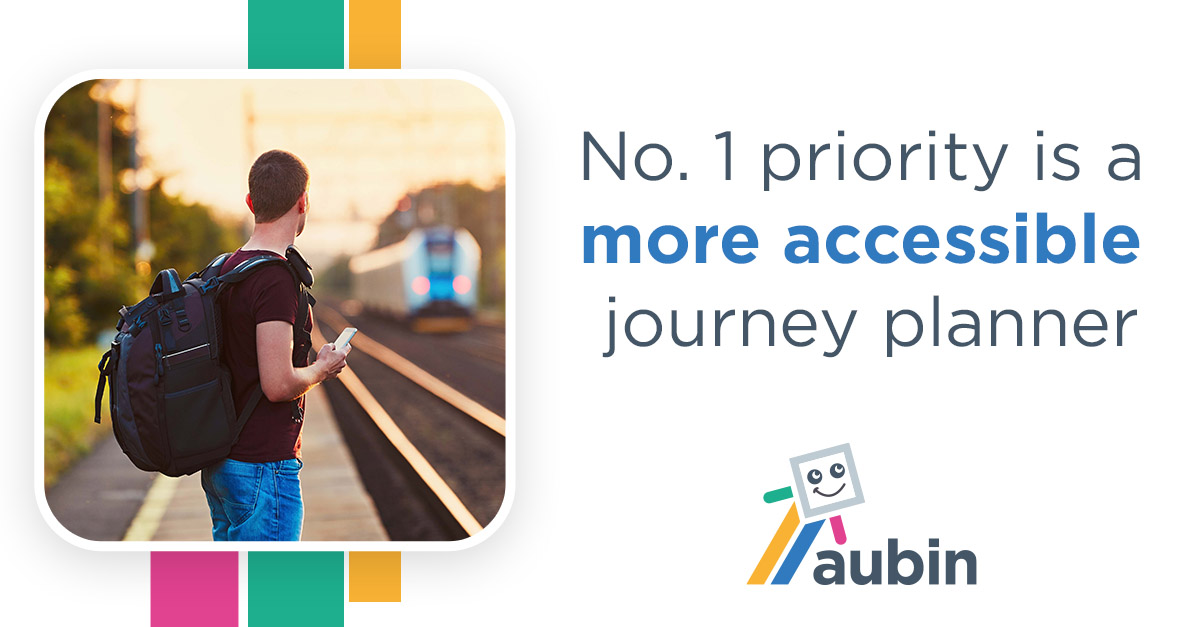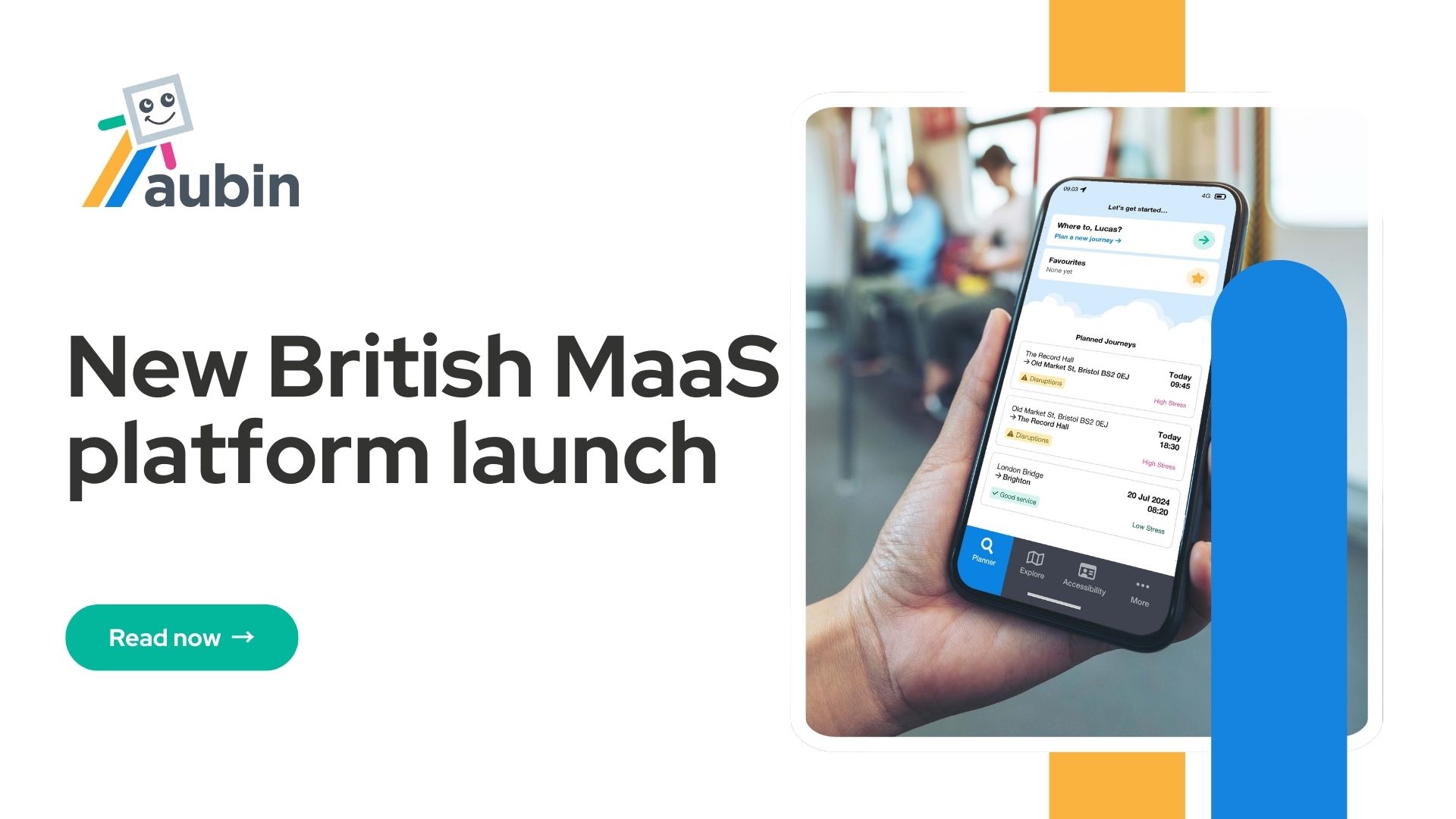- Home
- /
- News & Blogs
- /
- The Hidden Barriers in...
The Hidden Barriers in Public Transport: How Autistica’s Groundbreaking Report Validates Aubin’s Mission for Neuro-Inclusive Travel
6th June 2025

Public transport, at its core, is seen as a universal good – affordable, sustainable, and accessible for all. Yet, for a significant portion of the population, particularly autistic individuals and those with cognitive, sensory, or mental health differences, this ideal often falls short. The reality can be a labyrinth of invisible barriers that, unbeknownst to many system designers, profoundly shape and often hinder every part of a journey. A recently released, pivotal report from Autistica, “Public Transport Report 2025,” has shed crucial light on these challenges, providing invaluable market research that not only highlights the urgent need for change but also strongly validates the person-centred approach taken by the Aubin app. We commend Autistica for the exceptional quality and depth of this report, which serves as a beacon for more inclusive transport systems.
The Stark Reality: What the Reports Reveal
The Autistica report paints a clear picture: over 60% of autistic people actively avoid public transport due to the stress and challenges involved. This isn’t a minor inconvenience; it’s a systemic issue preventing access to essential services like jobs, healthcare, education, and social lives. When asked what single factor would make the biggest difference to their public transport experience, the overwhelming response was a more accessible journey planner.
This finding is powerfully echoed by other key research, such as the National Autistic Society’s “Empowering Autistic Travel” (EAT) report. Both studies underscore how unpredictability, confusing information, and sensory overload force many autistic individuals to plan complex workarounds or, more often, avoid travel altogether. It’s a vital point that accessibility extends far beyond physical infrastructure like ramps or step-free access; it encompasses the entire experience, right from the very first moment someone begins planning their journey.
Unpacking the Hidden Barriers
The Autistica report, along with other research, meticulously outlines the common ‘hidden barriers’ that make public transport so challenging for neurodivergent individuals. These aren’t imagined difficulties; they are tangible, impactful obstacles:
- Sensory Overload: The cacophony of loud announcements, overwhelming crowds, unfamiliar smells, and flickering lights can quickly become unbearable.
- Cognitive Load: Processing rapid changes in routes, deciphering complex signage, or attempting to manage unexpected delays can be incredibly mentally exhausting. Neurodivergent people may experience visual and verbal processing differences, making it difficult to find the right information, and require consistent information across platforms. Working memory challenges can also make complicated verbal instructions hard to remember.
- Timing Pressure: Tight connections are a source of immense anxiety, leaving no room to recover from minor hitches or unexpected issues.
- Fear of the Unknown: Unfamiliar routes, confusing wayfinding, and a general lack of control can transform a simple journey into a deeply stressful ordeal. The uncertainty and unpredictability of public transport are key barriers.
Crucially, the report highlights that neurodivergent individuals are less likely to own a vehicle, making them more dependent on public transport. Yet, they are also less likely to use it for work or leisure, primarily limiting its use to essential needs like healthcare appointments. The energy and effort involved are significant barriers, reported by 83% of neurodivergent people compared to 49% of neurotypical people. This emphasizes that public transport is a necessity, but the immense effort required often means it’s limited to critical journeys only.
Aubin’s Response: Built with Understanding, Driven by Need
At Aubin, we’ve been listening to these experiences long before the recent reports, and our journey planner has been built with these very barriers in mind. Our fundamental belief is that accessibility starts well before you even leave your house.
Our approach directly addresses the priorities identified by both Autistica and the EAT report: tools that are person-centred, predictable, and flexible.
- Calmer, Kinder Journeys: Unlike conventional planners focused solely on speed, Aubin suggests calmer, slower journeys that actively help avoid overstimulation and panic. Our goal is genuinely the kindest route, not just the fastest.
- Minimising Stressful Transfers: Each transfer, whether from bus to train or platform to platform, can be a high-stress event. Aubin prioritises routes with fewer transfers, making the entire travel experience feel much more manageable.
- Building in Recovery Time: We understand the need for breathing room. Aubin includes extra time between connections, so you’re never rushing or feeling overwhelmed, and there’s space for small delays or unexpected issues.
- Peace of Mind from the Start: The planning stage itself can often be the most daunting. Aubin helps travellers feel more in control by providing clear, predictable information without the usual overload. Better information for managing disruption is crucial, and 80.8% of neurodivergent people reported that a live information app would improve travel. Aubin’s approach directly addresses this. Our customisable autism card also enables users to communicate personalised needs.
Rethinking Accessibility: Beyond Ramps and Into Experience
The Autistica report is a powerful validation of Aubin’s mission. It reinforces that an “accessible journey planner” is far more than just a functional tool. It’s a profound way of respecting individual needs and recognising that true accessibility encompasses every aspect of the travel experience. We’re not merely helping people navigate from A to B; we are empowering them to travel with genuine confidence, to access education, employment, healthcare, and social events that might otherwise be out of reach.
If you would like to read more about Autistica’s findings, read the full report here:
https://www.autistica.org.uk/downloads/files/Public-Transport-Report-2025.pdf
National Autistic Society’s EAT Research full report:
Experience the Difference with Aubin
We invite you to experience a truly different way to travel – one that truly sees the person behind the journey.
Visit www.aubin.app today and start planning your next journey with peace of mind.



